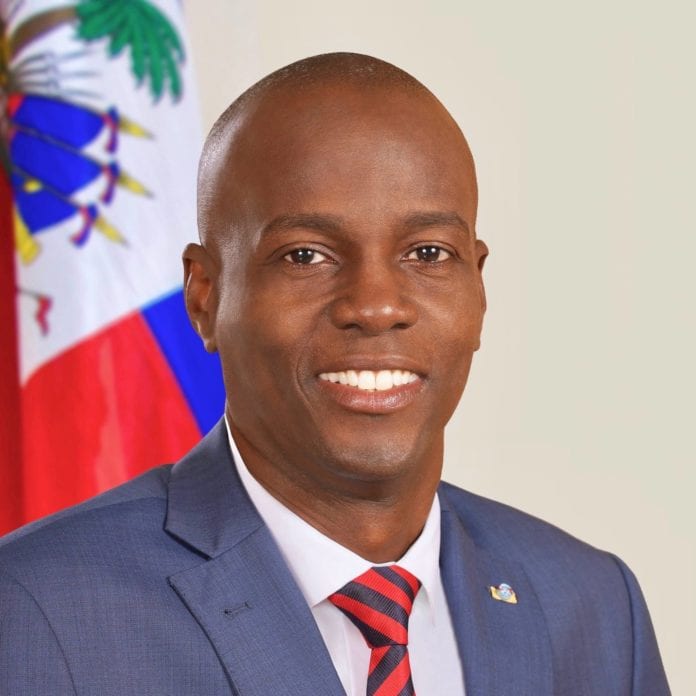The President of Haiti is officially referred to as the President of the Republic of Haiti or the Head of State. The Haitian President does not have all the executive power, though. Their power is split with the Prime Minister of Haiti, who is in charge of the Haitian Government. Since February 7th, 2017, the Haitian President has been a man named Jovenel Moise.
The Haitian constitution has been reimagined over the last 200 years. The country currently follows the 1987 Constitution of Haiti. According to Articles 134 and 135 of Chapter III Section A of the constitution, the term of the Haitian presidency is five years. It outlines that the popular vote will determine who gets elected as the next Haitian president.
The same president cannot serve two consecutive terms. That means an incumbent president cannot run for reelection while they’re currently in office. However, the same president can run for a second term after one five-year term has passed with someone else as president. Once a president serves two nonconsecutive terms, they cannot run again for a third term. Two terms are the limit for the Haitian presidency.
Eligibility Requirements
There are certain eligibility requirements that a presidential candidate must meet to qualify to run for president. Those eligibility requirements are as follows:
- The candidate must have been born in Haiti.
- The candidate must be a Haitian citizen without ever legally forfeiting their nationality and claiming citizenship somewhere else.
- The candidate must be at least 35 years of age or older by the time they are elected as president.
- The candidate must own real estate property in Haiti, which must include a local house or residence in the country.
- The candidate must not have had their civil rights taken away for a crime they committed.
- The candidate must not have ever been sentenced to prison or death.
- The candidate must have lived in Haiti for a minimum of 5 years before the day in which they are elected.
- If the candidate had a job managing public funds, they must no longer have any responsibilities in that field. It might require them to discharge these responsibilities completely. That way, it reduces the chances of corruption and fraud from the presidency.
You’ll notice a lot of these requirements are similar to the requirements of the United States presidency. For instance, the constitutions of Haiti and the United States both specify that a president cannot serve more than two terms and has to be natural born citizen of the country who is at least 35 years of age or older. The difference is that presidential terms in the United States are 4 years instead of 5 years.
Elections
During the fifth year of the current president’s term, the Haitian presidential election takes place in November on the final Sunday of the month. However, there is no requirement for all the votes to be counted by the end of election night. It is possible for the election time to continue well past the Haitian Election Day.
For instance, the Haitian presidential elections often have a lot of candidates running at the same time. In the 2015 Haitian Presidential Election, there were 58 candidates running simultaneously. Most of them got less than 1% of the vote, with the two top candidates getting 32.81% and 25.27% of the vote; respectively.
The candidate who got 32.81% of the vote, Jovenel Moise, had a simple majority win, but the Haitian Constitution requires a candidate to win by an absolute majority, which would have to be over 50% of the vote. As a result, Moise had to have a runoff election against the second-place winner, Jude Celestin, who got 25.27% the first time. The result of the runoff election had Moise with 55.7% of the vote, which made him the official winner and next president of Haiti.
The results of the elections did not go without protest and rioting. Since corruption exists at the highest levels of the Haitian government, the Haitian people are quick to assume that the election was rigged. It is the same kind of rhetoric that you hear in the United States these days. The only difference is that Haitian elections have less safeguards than American elections. So, a rigged election in Haiti would not be too surprising.
The new president takes office on February 7th of the following year. It is the day when the old president’s term officially ends. Once the new president takes office, they are given the powers granted to them under the Haitian Constitution. Likewise, the Haitian President has a responsibility to enforce the Constitution and ensure that all the country’s government institutions are in line with the provisions set forth in it.
Presidential Powers
One of the most important jobs of the Haitian President is to ensure the country’s independence and freedom. When the President has a majority of his party in the Parliament, he is allowed to choose a new Prime Minister to run the Haitian Government. The President has the power to fire the Prime Minister if they don’t live up to their sworn duties.
If the President were to declare war on another country or wish to sign a peace treaty with another country, then he must seek approval from the Haitian Parliament. The President may appoint ambassadors to represent Haiti in foreign countries. Other appointees of the President include the commander-in chief of the Armed Forces of Haiti and the Chiefs of the Haitian Police Forces in the country.


